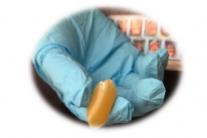Dr.
Chemical Engineering Professor receives a $1.5M NASA EPSCoR grant to develop solid-state batteries for future NASA missions.
Fri, 08/27/2021 - 11:02amDr. Xiao-Dong Zhou, Stuller Endowed Chair of Chemical Engineering and Director of the Institute for Materials Research and Innovation was awarded a three-year $1.5M cooperative agreement with NASA through its Established Program to Stimulate Competitive Research (EPSCoR) in aerospace. Working closely with Dr. Zhou at UL Lafayette is Dr. Ling Fei, Assistant Professor in Chemical Engineering who specializes in solid state energy storage materials. Dr. Zhou will lead an interdisciplinary team from UL Lafayette, Louisiana State University, Louisiana Tech University, and Louisiana Board of Regents in collaboration with NASA partners at Glenn Research Center and NASA’s Jet Propulsion Lab, as well as industrial partners at General Motors and IBM.
This cooperative agreement award will address NASA challenges of aerospace power and energy storage by developing solid-state batteries for future NASA missions. It is expected that this research, will develop novel materials, electrolyte architecture, and theory for the safe and high-capacity batteries.
Solar system exploration priorities identified by NASA seek to reach targets of broad
scientific interest across the solar system. All of these missions must carry some form of
energy storage. The extreme environments of planetary missions require considerable
evaluation, adaptation and testing of the energy storage components and their subsystems, for planetary missions are far more demanding than the applications on Earth. The proposed research is also closely aligned with the Louisiana’s research priorities in materials science and advanced manufacturing.
This project will also aid the economy of Louisiana by developing an advanced battery research infrastructure in the state, as well as generate professional development pathways by providing testing capability, training opportunities for project students as well as early-career faculty, and advice on project methods and activities.
UL Lafayette’s project was positively called out in the press release issued by NASA: https://www.nasa.gov/stem/epscor/feature/nasa-epscor-fostering-innovation-through-cooperation

